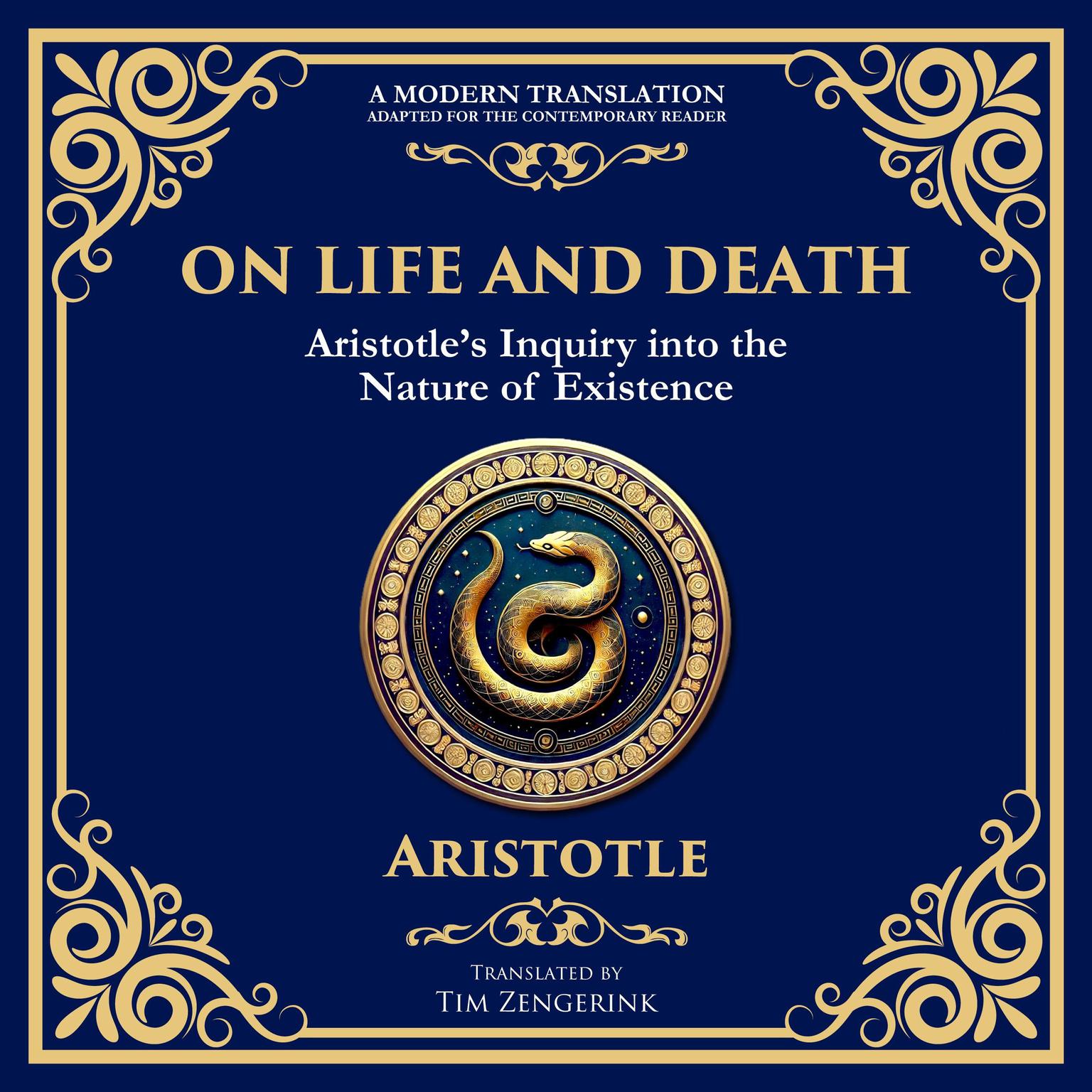 Play Audiobook Sample
Play Audiobook Sample
On Life and Death: Aristotle’s Inquiry into the Nature of Existence Audiobook
 Play Audiobook Sample
Play Audiobook Sample
Quick Stats About this Audiobook
Total Audiobook Chapters:
Longest Chapter Length:
Shortest Chapter Length:
Average Chapter Length:
Audiobooks by this Author:
Publisher Description
What if you could delve into the profound mysteries of life and death, gaining clarity on the essence of being?
Aristotle’s enduring exploration of existence stands as a cornerstone in understanding the fundamental questions of life: What is it that animates us? How do we define living vs. nonliving? Adapted for the contemporary reader, this edition bridges ancient knowledge and modern curiosity, offering a timeless lens through which to contemplate life’s greatest enigmas.
What You’ll Discover in This Modern Translation:
- The philosophical roots of life’s defining qualities
- Distinctions between the living and the inanimate world
- Insights that connect ancient theories with modern biology
- A roadmap to deeper contemplation of mortality and meaning
Imagine approaching life and death not with fear or confusion, but with a calm, reflective wisdom that transcends cultural boundaries. Aristotle’s nuanced inquiry encourages new perspectives on the preciousness of life and the inevitability of death.
Embrace a richer understanding of existence. Get your copy now and discover insights that spark meaningful reflection on life’s most profound questions.
Download and start listening now!
On Life and Death Listener Reviews
Be the first to write a review about this audiobook!
About the Authors
Aristotle (384–322 BC) was a Greek philosopher, scientist, and physician. As a young man, he became a student under Plato in Athens. In 342, he became the tutor of young Alexander the Great in Macedonia. After that, Aristotle returned to Athens to establish his own school and research institute, the Lyceum. His writings have profoundly affected the whole course of philosophy, from ancient times to the present.
Julius Caesar (100 BC–44 BC) was a military general and leading politician in the Roman republic. His family, the Julii, claimed descent from the ancient kings of Rome and from the goddess Venus. Caesar rapidly carved out an impressive political career, forging an alliance with Pompey and Crassus in 60 BC. The Civil War is Caesar’s attempt at an explanation of the war that changed the Roman world.
About Zeek Ring
James Allen (1864–1912) was a philosophical writer born in Leicester, England. He wrote numerous spiritual and inspirational books, including From Passion to Peace and The Eight Pillars of Prosperity. He is considered a pioneer of the self-help movement. His best-known work, As a Man Thinketh, has been in print since its publication in 1902.






















